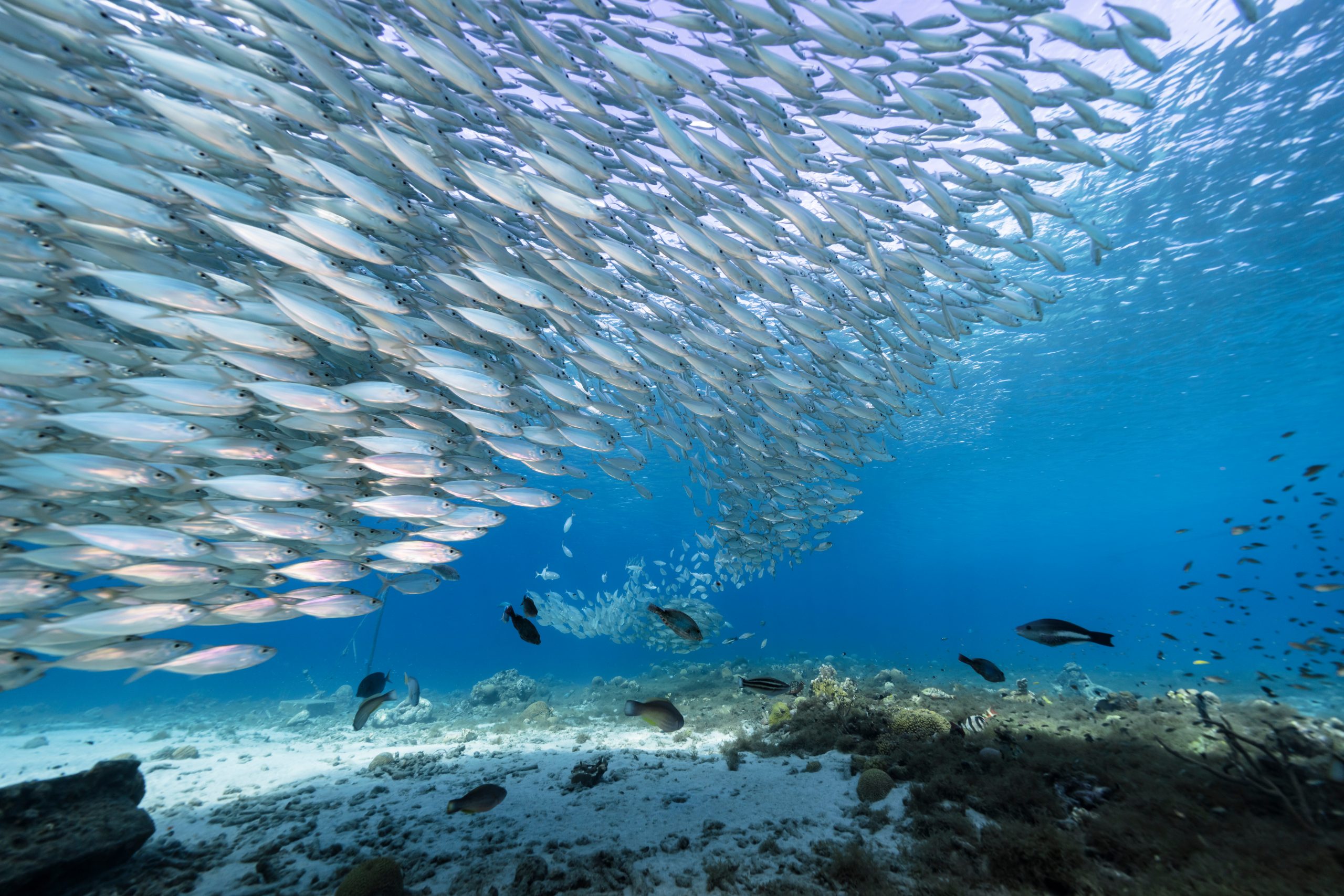News
UNEP-WCMC marine experts progress working definition of ‘destructive fishing’ to enable more sustainable and equitable practices

News | Mar 2024
A new working definition of "destructive fishing" has been drafted following a rigorous consultation process involving 80 fisheries experts from over 30 countries.
Many policies and international frameworks – including the UN Sustainable Development Goals – recognise the need to end destructive fishing practices to conserve marine resources, protect the ocean and ensure peace and prosperity for people and the planet.
However, despite its widespread use, “destructive fishing” is currently undefined and therefore immeasurable. The vagueness of the term has rendered it a quasi-concept, undermining the ability to develop and implement effective solutions, as well as measure progress towards reducing destructive fishing practices.
The working definition, which has been described in a paper published today in Conservation Letters, provides a consensus-led draft for decision makers to build upon during policy and management discussions, and will meaningfully support countries to monitor and reduce destructive fishing practices.
The project team - comprised of Fauna & Flora, the UN Environment Programme World Conservation Monitoring Centre (UNEP-WCMC), Brunel University London, BirdLife International and the University of Cambridge - facilitated a consultative, expert-led process which defined destructive fishing as:
“Destructive fishing is any fishing practice that causes irrecoverable habitat degradation, or which causes significant adverse environmental impacts, results in long-term declines in target or non-target species beyond biologically safe limits and has negative livelihood impacts.”
It is important that we build on the current momentum and continue to work with interested governments, industry, communities and fisherfolk to refine the definition, and explore how it can be tailored to meet their context and needs. Moving forward we will work to raise awareness of destructive fishing discussions and explore how the working definition can be broadened to consider destructive fishing in terms of societal and economic impact.
Dr Chris McOwen, Lead Marine Scientist, UNEP-WCMC
Fisheries are fundamental to global food security, but if we want to ensure the future health of fish stocks – and our ocean – we need to avoid fishing methods that are destructive to marine ecosystems and everything living in them. This new definition is an incredibly important step forward for the ocean and the sustainable livelihoods of fishers around the world. Without clear guidelines of what destructive fishing is, it is nearly impossible to bring in the international policy or action to address it.
Hannah Richardson, project lead and Technical Specialist, Fauna & Flora
To form consensus on the working definition, the Delphi technique - an anonymous, iterative process of expert consultation - was used to synthesise the opinions of a range of 80 fisheries experts representing 32 nationalities, including academics, practitioners in NGOs, and those working directly in the fishing industry and associated fields.
UNEP-WCMC experts were involved throughout the definition-building process and supported the facilitation of an expert discussion workshop in October 2022.
Now that a starting definition has been proposed, the ambition of the project team is to work with stakeholders to further develop a consensus-built definition of “destructive fishing” and encourage its adoption.
The team also aims to pilot approaches to measure the prevalence and magnitude of destructive fishing, through a Monitoring Framework launched in 2023. The framework outlines the types of evidence that could be used to determine whether and how destructive fishing is taking place, providing national governments and the private sector with a crucial tool to identify and mitigate destructive fishing.
A recent landmark UN report also underscores the dire status faced by many fish species. In February, the first-ever State of the World’s Migratory Species report, prepared by conservation scientists at UNEP-WCMC found that nearly all protected species of migratory fish – including sharks, rays and sturgeons – are facing a high risk of extinction, with their populations declining by 90 per cent since the 1970s.
Unsustainable fishing and harvesting of aquatic resources, which includes destructive fishing practices, were identified as key drivers of threats.
Today’s new paper, titled Destructive Fishing: an expert-driven definition and exploration of this quasi-concept has been published in Conservation Letters here.
Cover image: Adobe Stock ref #491858861: Seascape with Bait Ball, School of Fish, Mackerel fish in the coral reef of the Caribbean Sea, Curacao
Have a query?
Contact us
communications@unep-wcmc.org
